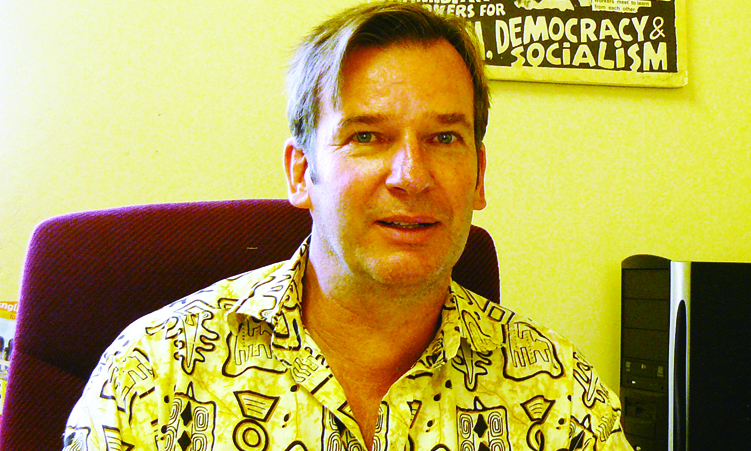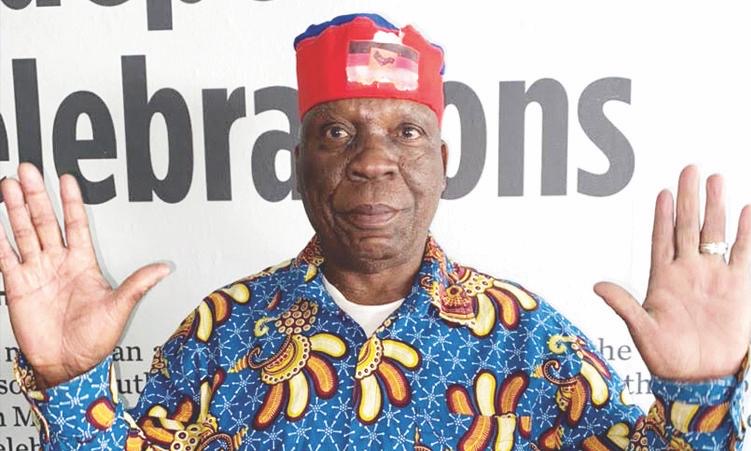After 34 years of independence, Namibia has finally announced the introduction of a national minimum wage.
Although some employers will be quick to criticise the proposed minimum wage as unaffordable and may even threaten retrenchments, a national minimum wage is long overdue.
Namibia’s labour market is still characterised by very low wages and widespread exploitative practices.
This is a result of maintaining colonial economic structures which were based on cheap black labour, a trend which continued after achieving political independence.
OVERCOMING POVERTY?
The labour ministry’s announcement of a national minimum wage spells out what it aims to achieve – improving the wages of the lowest-paid workers, reducing income inequality, alleviating poverty and achieving a decent standard of living for all.
These are certainly laudable goals and should be widely supported.
However, the question is: Will a national minimum wage of N$18 an hour be able to achieve these goals?
The wage level of most Namibian workers is very low.
Also, collective bargaining between trade unions and employers is limited to a few sectors where workers are unionised such as the public sector, mining and fishing.
In addition, there are some sectoral minimum wages like those for domestic workers, farmworkers, security guards and construction workers.
However, these wages are so low that they lock workers into poverty even if they have full-time jobs.
Available data shows that the vast majority of Namibian workers still earn below N$2 000 a month (including those in the informal economy).
This not enough to meet even the most basic of needs like food, housing, clothing and transport.
The national minimum wage of N$18 an hour will undoubtedly be a relief for the many workers currently paid starvation wages.
In terms of monthly incomes, the minimum wage would translate into N$3 117 for those working 40 hours a week, while those working 45 hours a week would earn N$3 507.
This is still way below the living wage envisaged in the Namibian Constitution, which would need to be set at a level that would allow workers to meet their basic needs and lead a dignified life.
THE CHALLENGE OF ENFORCEMENT
Given the goals of the national minimum wage, the key question is implementation: How violations can be reported and who will ensure enforcement?
Based on past experiences with sectoral minimum wages, there will be employers who will simply ignore the national minimum wage and continue paying starvation wages.
They will rely on workers not knowing their rights or being too afraid to demand their rights for fear of victimisation.
This problem is widespread, particularly among those workers the minimum wage wants to reach.
Most of them are in the low skills category and can be easily replaced by the thousands of unemployed Namibians desperate enough to accept a job under virtually any condition.
Workers in the lowest paying sectors (agriculture, domestic and security work, informal economy, accommodation and food services) are the ones with the greatest need to be organised in strong trade unions to ensure that their rights are respected.
Collective bargaining would help them improve their working conditions beyond the minimum levels.
However, trade unions have a limited membership in those sectors and struggle to make inroads.
VIOLATIONS AND VULNERABILITIES
These workers are still vulnerable to abuses of their rights, which includes the right to be paid at least the minimum wage.
The ministry’s labour inspectorate is understaffed and doesn’t have the capacity to enforce employment provisions countrywide.
Long before the national minimum wage was announced, workers already experienced frequent violations of their legal entitlements such as paid annual leave, paid sick leave or double pay for overtime.
Thus, a key question is how Namibia can ensure that the national minimum wage is paid in all sectors and how we can move towards a living wage instead of being stuck at minimal levels?
National enforcement of the minimum wage will require an improved labour inspectorate, stronger trade unions willing to work with each other as well as employers’ organisations willing to play an active role in convincing members to adhere to the legal provisions.
In addition, new mechanisms will have to be created (for example a kind of ‘hotline’) through which workers can report non-compliance without risking victimisation and retrenchments.
This will be essential to ensuring that the minimum wage improves the livelihoods of the lowest paid workers.
MINIMUM OR LIVING WAGE?
There should be no illusion, however, about the ability of the national minimum wage to overcome poverty.
At N$18 an hour, workers will still struggle to make ends meet and will still have to share their meagre income with others.
While the national minimum wage is a step in the right direction, much more will need to be done to achieve a living wage and a decent standard of living for all.
- *Herbert Jauch is a labour researcher and the chairperson of the Economic and Social Justice Trust.
Stay informed with The Namibian – your source for credible journalism. Get in-depth reporting and opinions for
only N$85 a month. Invest in journalism, invest in democracy –
Subscribe Now!







